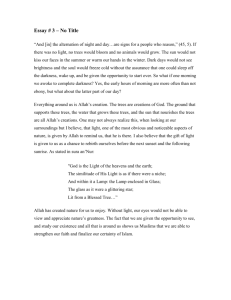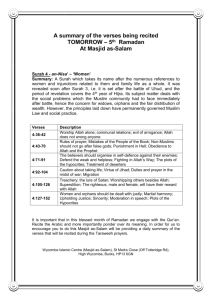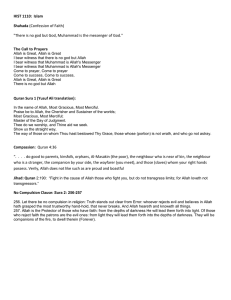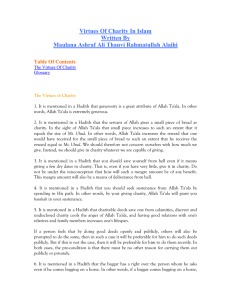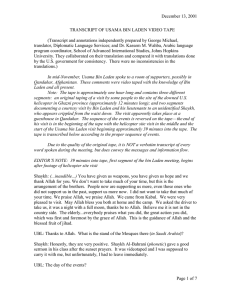Exerpts from the Qur’an
advertisement
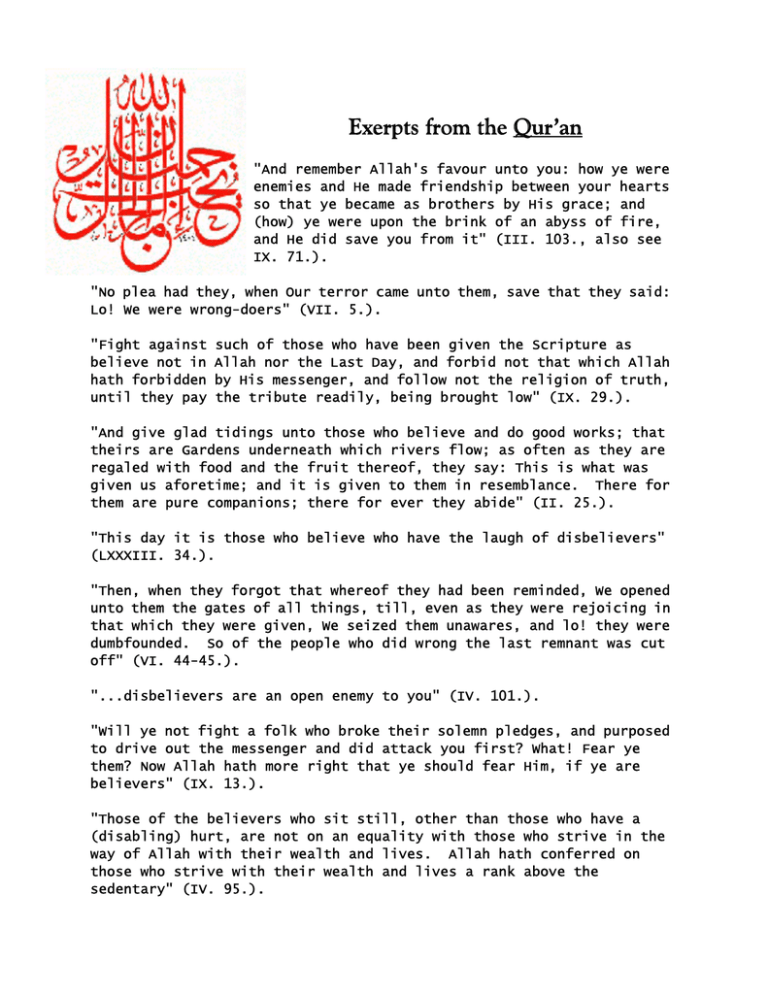
Exerpts from the Qur’an "And remember Allah's favour unto you: how ye were enemies and He made friendship between your hearts so that ye became as brothers by His grace; and (how) ye were upon the brink of an abyss of fire, and He did save you from it" (III. 103., also see IX. 71.). "No plea had they, when Our terror came unto them, save that they said: Lo! We were wrong-doers" (VII. 5.). "Fight against believe not in hath forbidden until they pay such of those who have been given the Scripture as Allah nor the Last Day, and forbid not that which Allah by His messenger, and follow not the religion of truth, the tribute readily, being brought low" (IX. 29.). "And give glad tidings unto those who believe and do good works; that theirs are Gardens underneath which rivers flow; as often as they are regaled with food and the fruit thereof, they say: This is what was given us aforetime; and it is given to them in resemblance. There for them are pure companions; there for ever they abide" (II. 25.). "This day it is those who believe who have the laugh of disbelievers" (LXXXIII. 34.). "Then, when they forgot that whereof they had been reminded, We opened unto them the gates of all things, till, even as they were rejoicing in that which they were given, We seized them unawares, and lo! they were dumbfounded. So of the people who did wrong the last remnant was cut off" (VI. 44-45.). "...disbelievers are an open enemy to you" (IV. 101.). "Will ye not fight a folk who broke their solemn pledges, and purposed to drive out the messenger and did attack you first? What! Fear ye them? Now Allah hath more right that ye should fear Him, if ye are believers" (IX. 13.). "Those of the believers who sit still, other than those who have a (disabling) hurt, are not on an equality with those who strive in the way of Allah with their wealth and lives. Allah hath conferred on those who strive with their wealth and lives a rank above the sedentary" (IV. 95.). "If ye punish, then punish with the like of that wherewith ye were afflicted. But if ye endure patiently, verily it is better for the patient" (XVI. 126.).






